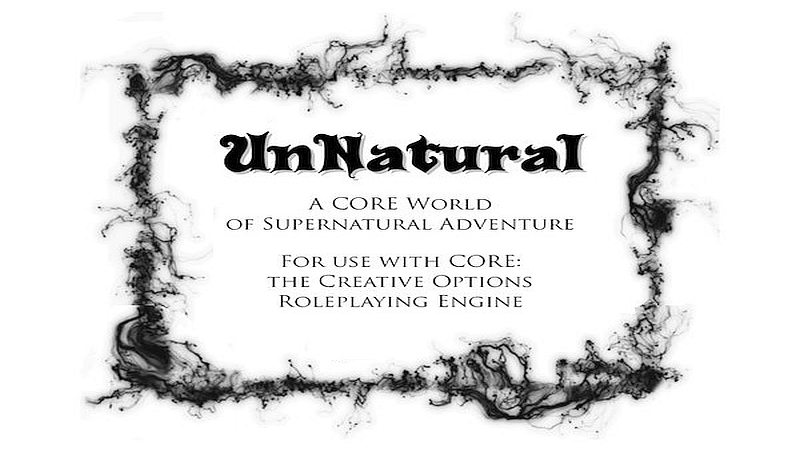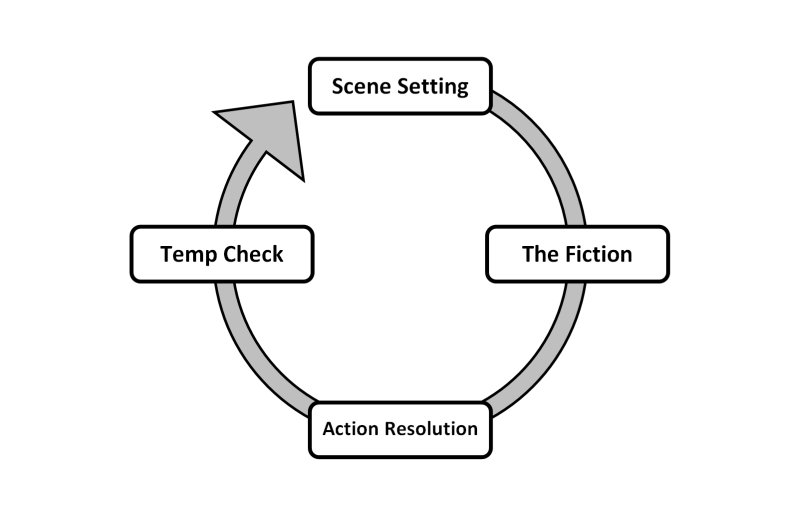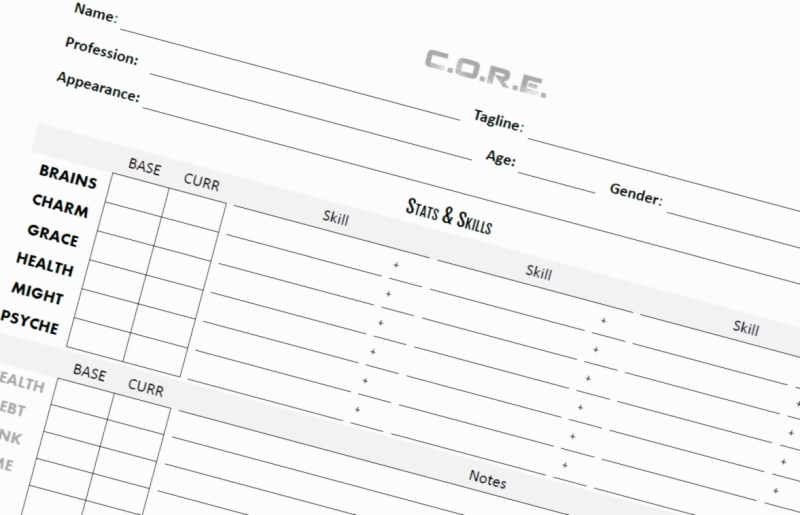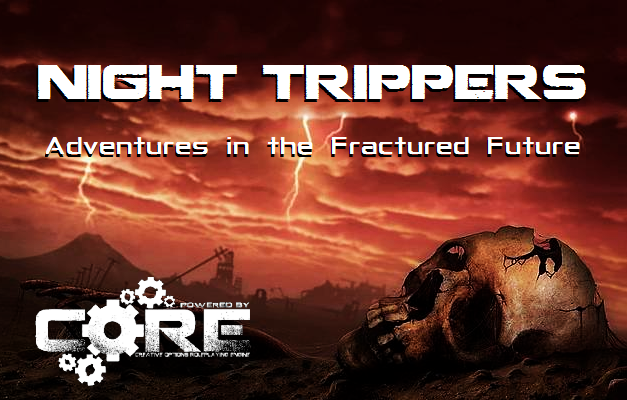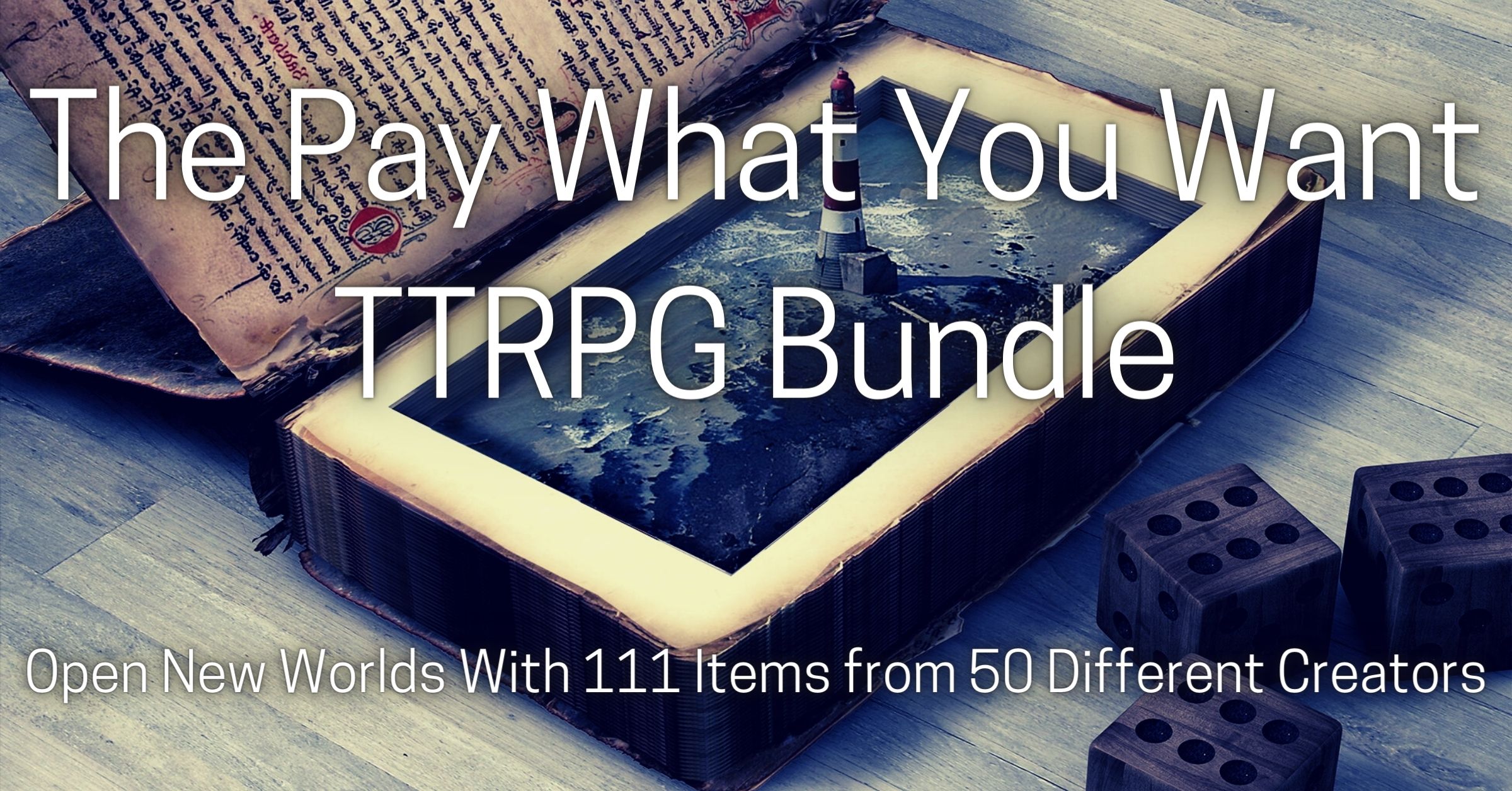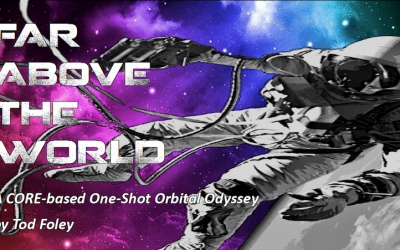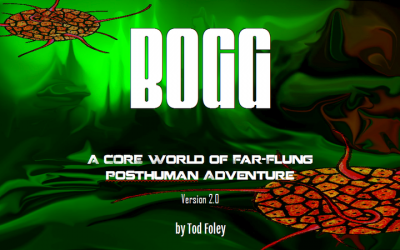A narrativist ensemble game about secret ninja drama on a long-forgotten island, written by Joe Jeskiewicz, Jonathan Walton & Tod Foley, with a resolution system based on "Rock-Paper-Scissors." New re-release for 2022! Shinobi Village was an entry in Paul Czege's...
UnNatural v3.0 in Print
IT IS HERE! UnNatural v3.0 -- 5x8" print edition. For those who don't know, "UnNatural" is a CORE World of modern-day monster hunting that might remind you of (the best seasons of) a certain TV show. It has been updated to CORE v3.0 and is available in print from...
UnNatural 3.0
Today my Playtester patrons are getting version 3.0 of UnNatural - bringing the rules up to CORE 3.0.It's based on that TV show I'm often talking about. The one with the two brothers? I'm sure you know it. Now you can play it!https://patreon.com/posts/71475614
RPG Design, Intent, and Pedagogy
It’s pretty rare for a game design to bother teaching how to GM the experience pedagogically. It’s even more rare for a game to describe the designer’s intended experience of play phenomenologically. The assumption seems to be “an RPG is an RPG” and “you bring your own style to the table.”
CORE PC Sheet
This PC Sheet includes fields for all the new CORE stats and data, along with plenty of space for notes. PDF format, permission granted to reprint.
CORE MICRO 3.0 Released
Taking its cue from the upcoming CORE COMPLETE book, this version includes new rules for Wealth, Debt, LifeShapers, Advancement, Gradiated Actions, Pushing Yourself, Running CORE, Playing CORE, and Hacking CORE.
Night Trippers debuts on LegendsOfTabletop
A battle-hardened soldier with a guilt complex. An emotional cripple with augmented vision. A homeless fugitive with experimental code in her head. All running from KillDrones & Reality Fractures in a war-torn hellscape… Carrying a magical psychic baby in a jar.
Artifacts of Horror Jam
The Artifacts of Horror Jam is a vast collaborative project to create a solo tabletop journaling game. In playing the game, you will be investigating mysterious events that have transformed the city into a ghost town. The main prop for this ludic investiogation will...
Pay What You Want Bundle on Itch.io
The PWYW Bundle is live! 111 games. Pay what you want. One-shots and full engines and battlemaps and supplements, all as free as you want them to be. Act now and get this free lamprey. https://itch.io/b/1384/pay-what-you-want-ttrpg
Far Above the World – a CORE-based Orbital Odyssey
It's your rookie mission to space. What could possibly go wrong? FAR ABOVE THE WORLD is a one-shot roleplaying adventure by Tod Foley, free for all patrons and members of the As If Collective. Join up at http://patreon.com/asif to receive this and other CORE downloads.
BOGG
In the late 23rd century, the planet Bogg was discovered quite by accident when a hypershunt failed to reach its intended destination and a group of 3,000 human colonists was stranded there without any means of returning to Earth – a planet they have long since...
What is the CORE RPG System
Come with us into the weeds of CORE History on LegendsOfTabletop, featuring such topics as CORE Design Philosophy, Hybrid Systems, Universal Mechanics, Minimal Scales, Experiential Narrativism, Emergent Story, Psychic Content, Fruitful Voids, Horizontal versus...




